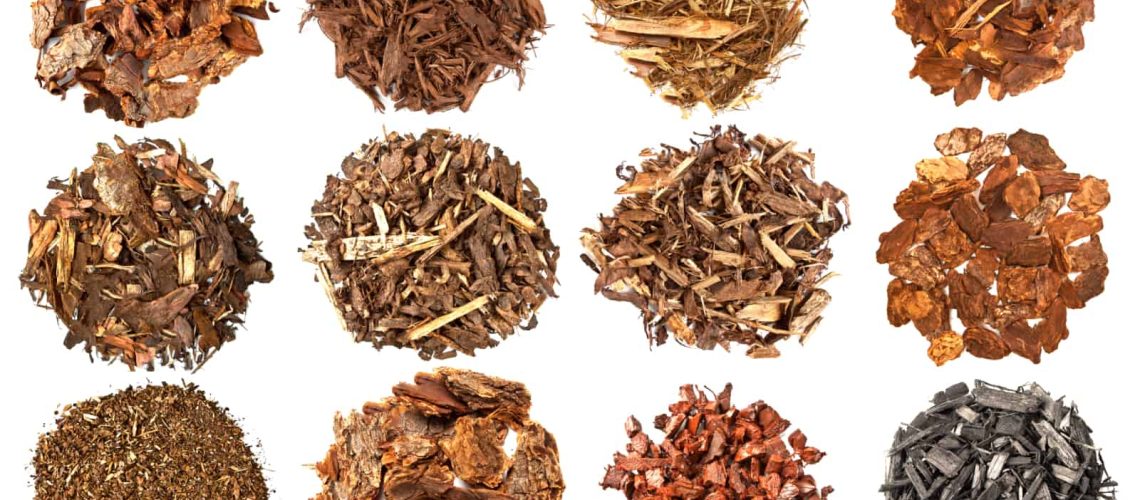Mulch is the perfect solution to spruce up your landscape in Florida. But choosing the right mulch for your yard can prove to be a task. Today we’re going to help Florida homeowners choose and install mulch in their yard.
Choosing the Best Mulches for Your Florida Home
Some homeowners prefer their landscape to stand out and serve as their home’s focal point. Others want their landscape to complement their home.
Regardless of what you desire, mulch can be the perfect solution to take your home’s landscape to the next level. But how do you choose the best mulch for your Florida landscape?
There are a variety of mulches available to choose from that all have their own features and benefits. To help you make the best decision, we’re going to provide a comprehensive guide to choosing and installing mulch for your landscape.
What is the Purpose of Mulch?
While most homeowners consider mulch a decorative addition to landscapes, its purpose extends far beyond being a decorative feature. It is placed on top of the soil and comprises things like tree bark, leaves, wood, and needles.
When placed correctly, mulch is an essential component for landscapes in Florida. Mulch doesn’t just aid in weed control; it helps retain moisture in the soil, even after irrigation. Retained moisture means that plant roots have more time to soak up water.
Mulch is also helpful for Florida landscapes because it helps protect plants from harsh temperatures and creates a separation between the soil and the air.
Choosing the Right Mulch
Color and cost is often the first thing that homeowners think about when choosing the best mulch. But there are other important factors to consider, such as the origin of the mulch, its durability, and the nutrient contents it has.
All of these factors will play an essential role in which mulch is the most sustainable and offers you the best long-term value. Let’s take a look at a few common mulch options for your landscape.
Pine Bark: This type of mulch is made from pine trees’ shredded barks. You can find this mulch in nugget and ground form and is brown.
Pine Bark has a variety of benefits. For instance, the natural bark of pine stays longer, which means it’ll take longer to fade compared to other options. Additionally, this mulch does an excellent job of keeping the soil moist and moderating soil temperature.
Pine Straw: This type of mulch looks like needles and comes from a pine plantation. These plantations typically produce both wood and paper products.
Many homeowners love this type of mulch because it offers a natural look to landscapes. Additionally, Pine Straw mulch is not likely to wash or blow away since the needles bind together.
Fallen Leaves: One of the best things about fallen leaves is that you can easily rake them right in your yard and use them as mulch.
If you’re looking for a cost-effective mulch with high nutrient contents, fallen leaves are a great option. Just keep in mind that these leaves decompose quickly, which means you’ll have to rake to add more mulch consistently.
Eucalyptus Mulch: Eucalyptus Mulch typically derives from plantations based in South and Central Florida. While Eucalyptus mulch is not as durable, it lasts longer than other mulch such as utility mulch and pine straw.
Melaleuca Mulch: The Melaleuca tree is an exotic invasive, and therefore, cutting them down for mulch is advantageous to the Floridian ecosystem. The wood is heat-treated to prevent seeds from germinating. This long-lasting mulch has a similar appearance to Cyprus and mixed hardwood. According to one UF/IFAS conducted study, an additional benefit of Melaleuca mulch is that it’s more durable than Cyprus mulch and pine bark.
Cyprus Mulch: Growing in Florida’s forested wetlands, Cyprus trees are a native. Cyprus mulch production comes from whole trees and leftovers of trees harvested for lumber, fencing, flooring, and more. Keep in mind this type of mulch is not recommended by the Florida-friendly Landscaping™ Program.
Rubber Mulches: This type of mulch, made from recycled tires, may seem appealing at first due to its long-lasting nature and color retention. However, consider that they absorb heat and raise the soil temperatures drastically, are less effective at suppressing weeds, and carry concerns for toxic chemicals possibly leaching into the soil over time.
Tips for Installing Mulch
If you want to make the most out of your mulch, it’s important to install it properly. Here are a few tips to follow.
- It’s best to have a 2 to 3-inch layer around all trees and shrubs
- Coarse mulch can be applied no more than 4 inches deep to avoid harming plants
- Rake older mulch for a refreshed landscape
- Avoid piling mulch at the base of a tree as it holds moisture and promotes rotting
Mulch is a versatile material that boosts the appearance of your landscape and benefits your soil and plants. If you’re ready to incorporate mulch for your landscape, be sure to use this guide for assistance.

